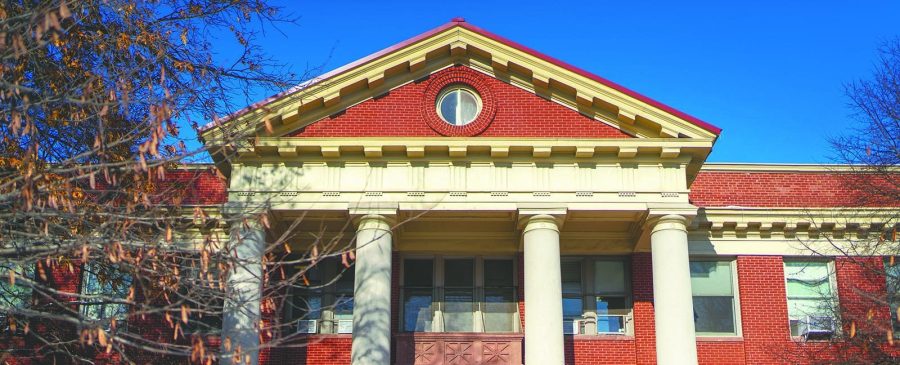When it comes to accessibility, Laird Hall has long been used as a symbol for Carleton’s physical inaccessibility problem. This begins to change now.
In conjunction with renovations to transition Laird from steam to hot water heating, the building will be made fully accessible, complete with fire sprinklers, a new second exit to the building, an elevator, and new restrooms. The renovations will be begin at the end of Fall 2020 and be completed by the end of Spring 2021, according to Steven Spehn, Director of Facilities on campus. The changes should be completed during the summer of 2021, with the building’s upgrades for the 2021 fall term. According to Fred Rogers, Vice President and Treasurer of the college, the building will be closed for about six months.
“Because the renovation will be rather invasive, we thought this was the perfect time to make accessibility changes to Laird Hall,” said Spehn. “The renovation will include other mechanical upgrades, upgrading to a central air conditioning system, and updating the electrical system.”
“Since the new elevator will go through offices, there will be some reorganization there; that might mean that one office goes away or several offices go away to allow for these accommodations,” added Rogers.
Rogers explained that the basement level, which houses the Registrar’s office, will be connected to the rest of the building through the new elevator, which means that students will be able to enter Laird through the ground floor and travel throughout the building. Estimates for the cost of the upgrades have not been completed yet.
In addition to the changes to Laird, there is a committee looking into circulation changes on campus to improve accessibility, in particular to Goodhue.
“There’s been a committee studying circulation on campus for a while now and their report is actually just now going to the President and then to the senior leadership team next week,” said Rogers. “It’s a pretty wild idea. Basically, there would be a skybridge that goes off the bluff behind Goodsell at a slope. Whether that would happen or not, I have no idea. The idea is more conceptual right now and we haven’t looked into how much it would cost, what it would structurally entail, or how it would aesthetically appear.”
This circulation plan also includes the elimination of the street in front of Sayles.
“There would also be some minor changes to walkways and parking. The plan would be to enhance pedestrian, bicycle, and vehicle circulation,” said Rogers.
“If you change that street in front of Sayles, there are a number of other things you need to change,” explained Spehn. “The bus pick-up would need to change and truck delivery would have to go to another street.”
Chris Dallager, Director of the Disability Office, voiced his support.
“I think it’s an exciting change that addresses one of the main campus buildings that has been lacking in accessibility,” Dallager said.
“The number of improvements in physical accessibility over the last few years has been impressive. From the updates to Scoville, the addition of an ADA-accessible, all-gender restroom in Leighton, the new Anderson Hall science building, the new hearing-loop in the chapel, and general summer renovations, Carleton is making fast improvements on physical accessibility,” added Dallager.
Anesu Masakura ’20, the CSA President based his campaign in part on improving accessibility on campus. “There are different kinds of accessibility,” said Masakura. “There’s physical accessibility; there’s accommodations. I decided to run for student body president because of my concerns for the lack of accessibility on campus and made it one of my biggest platform policies.”
“I was really excited to hear about these changes and I believe that it shows that they’re listening. You have students who don’t even apply to Carleton because it’s not accessible enough and who opt for other, more accessible colleges. These changes are very important for our college,” said Masakura.
He added: “Hopefully, instead of just making buildings accessible while renovating them, maybe the college in the future will make other buildings accessible regardless of whether or not they’re being renovated. That’s the dream.”












